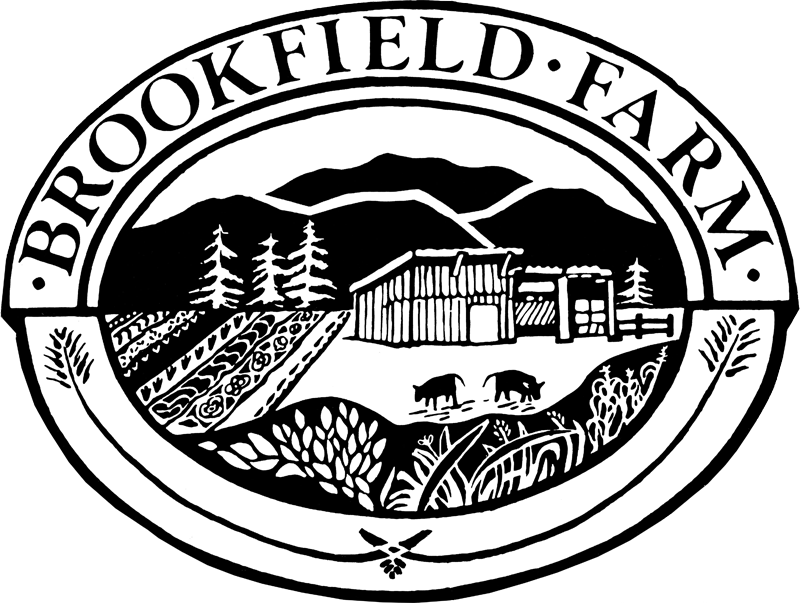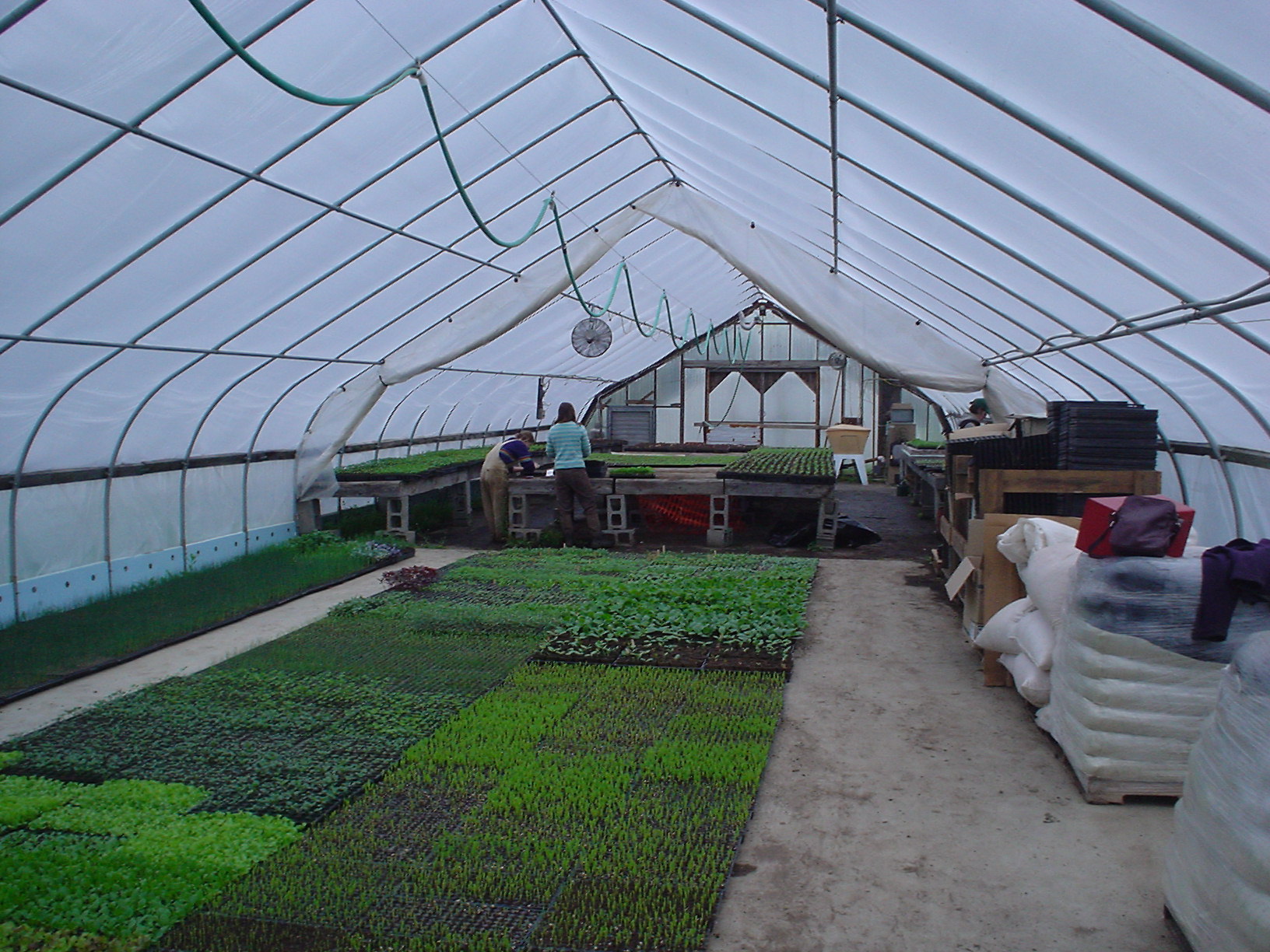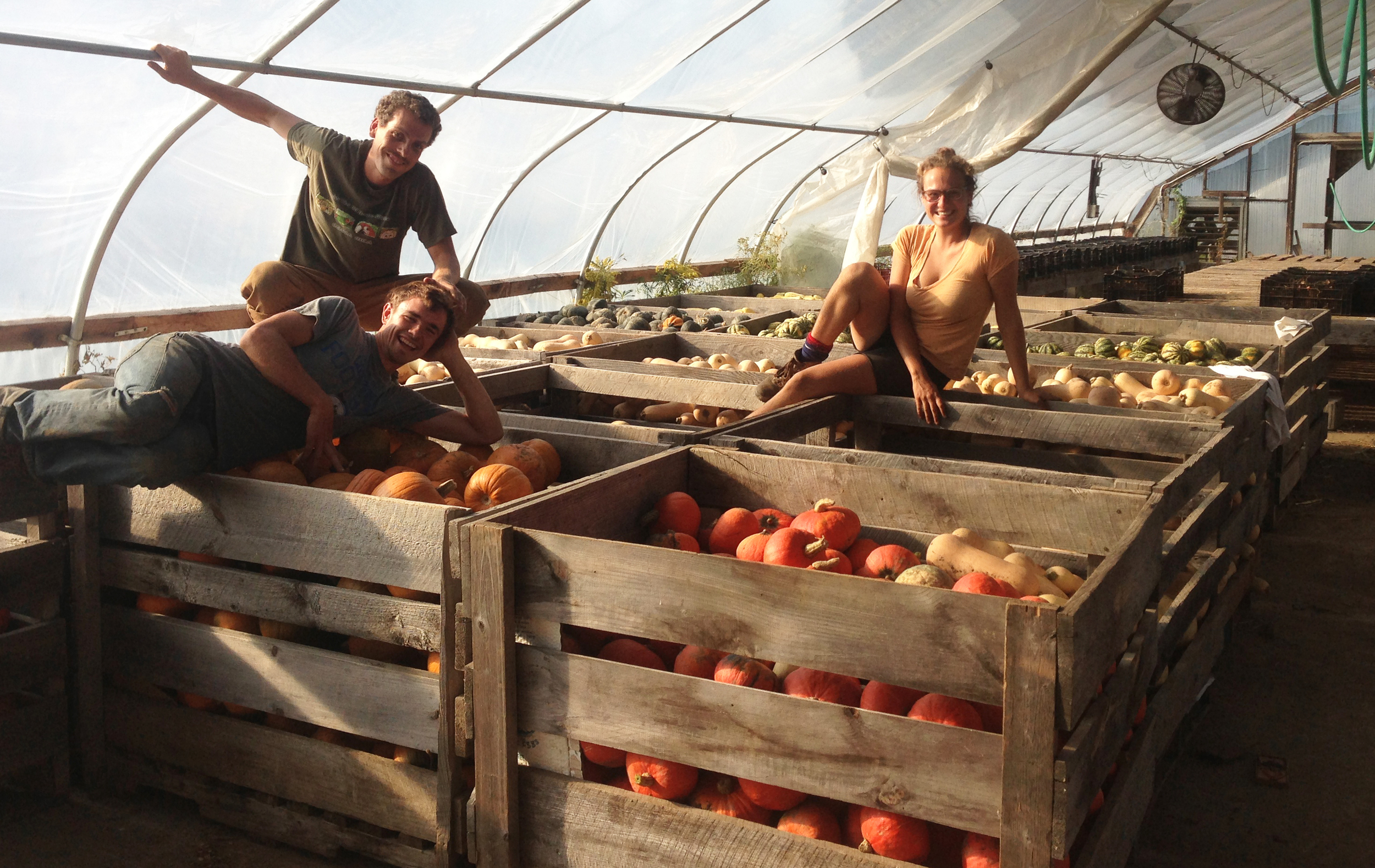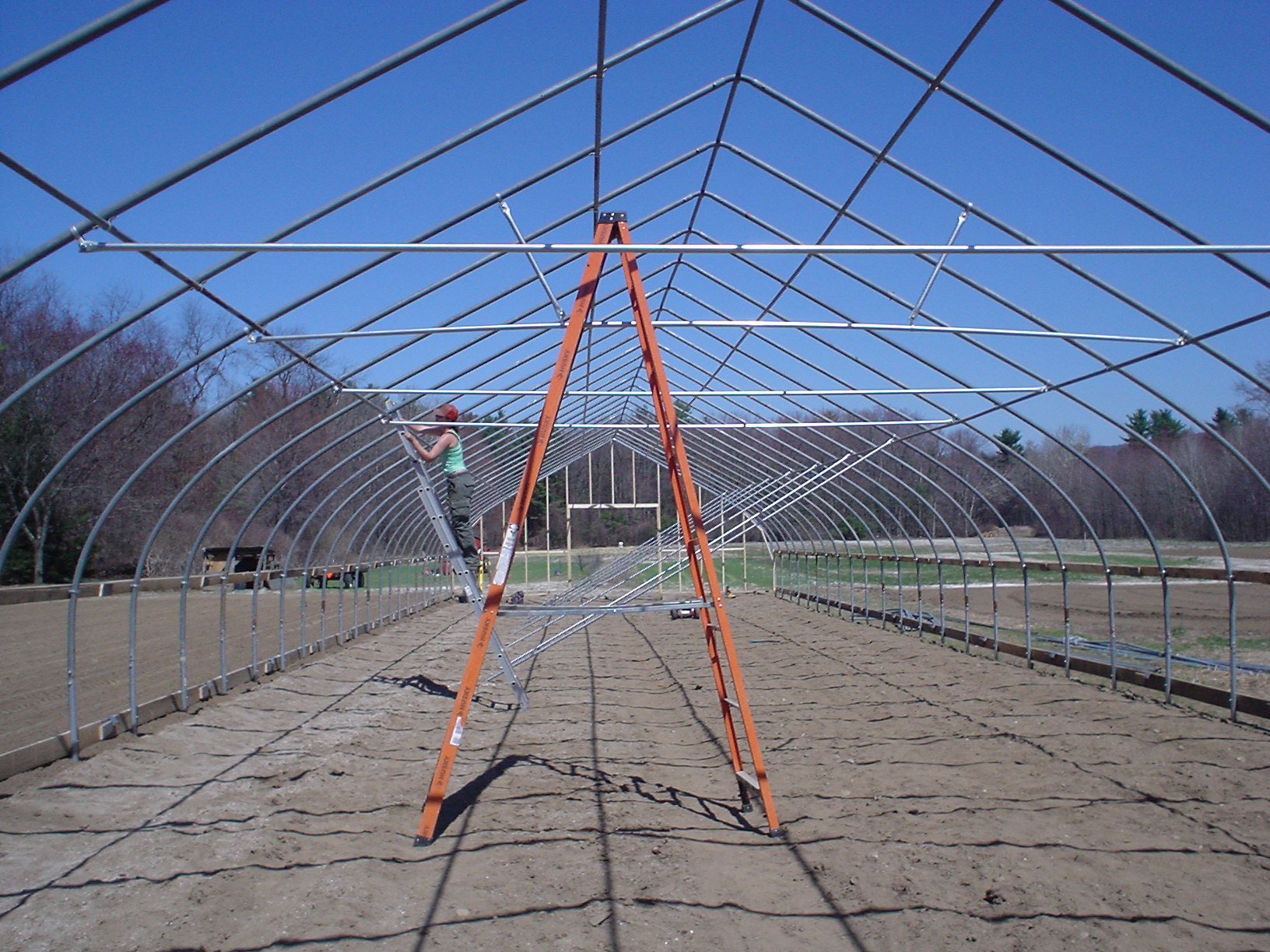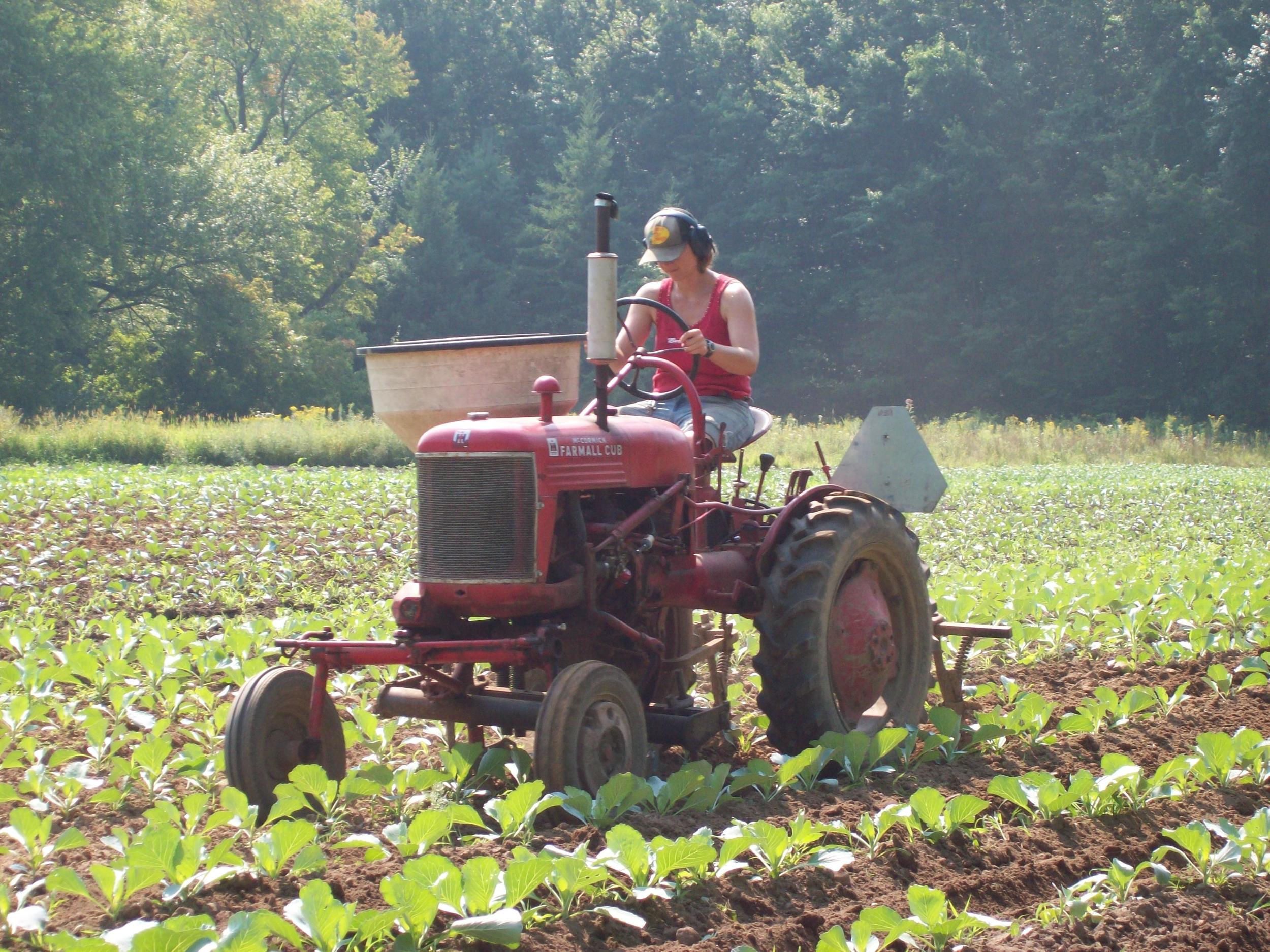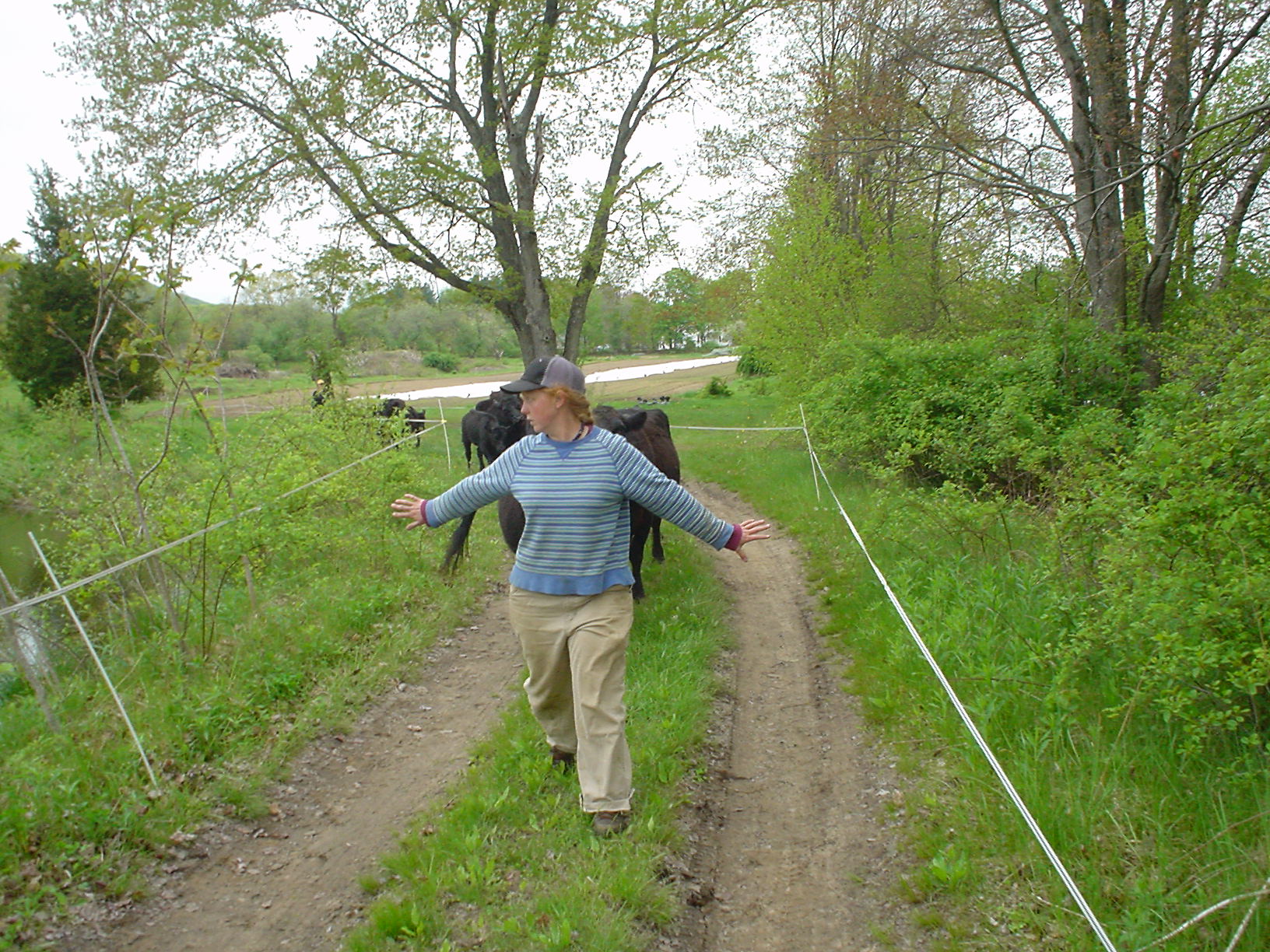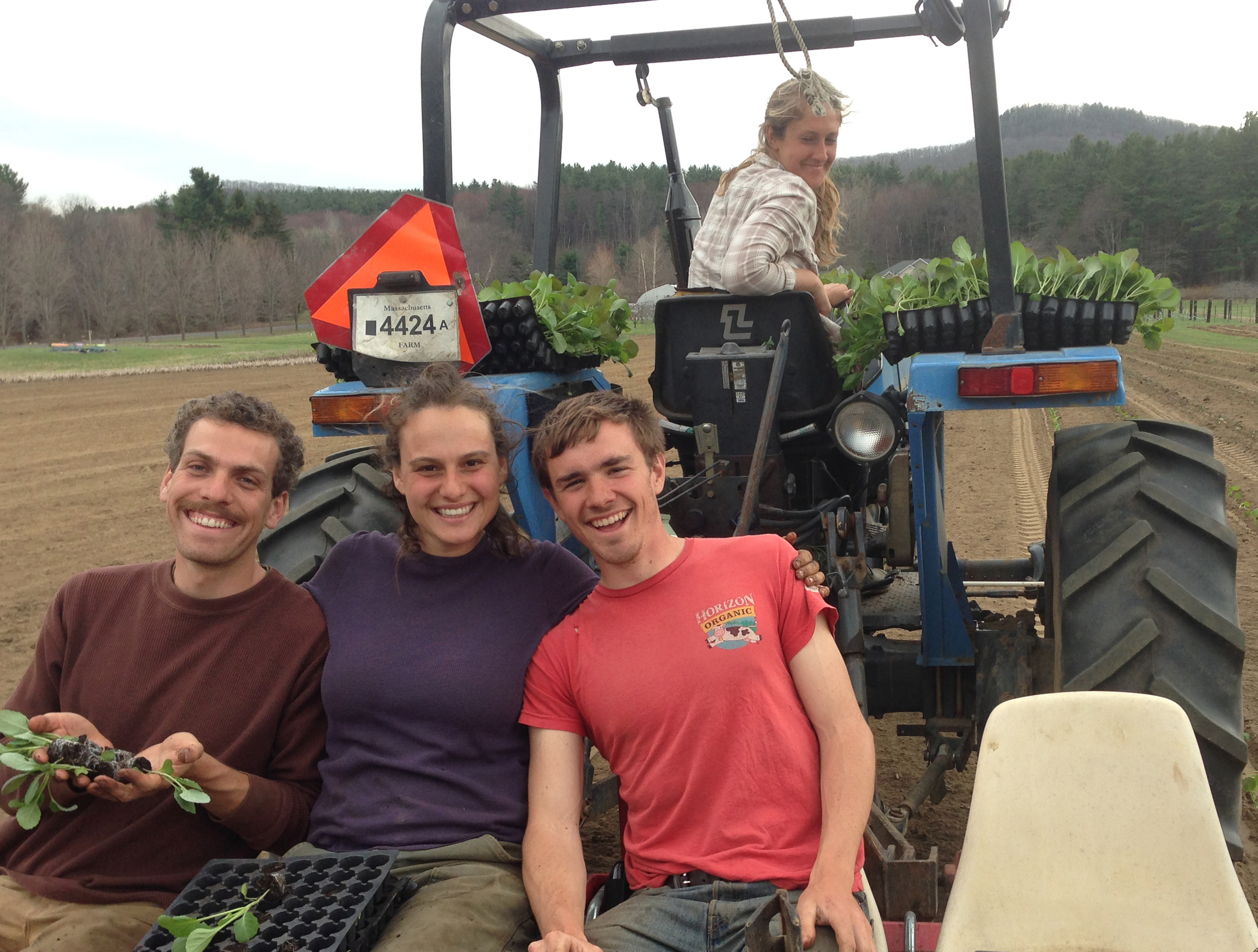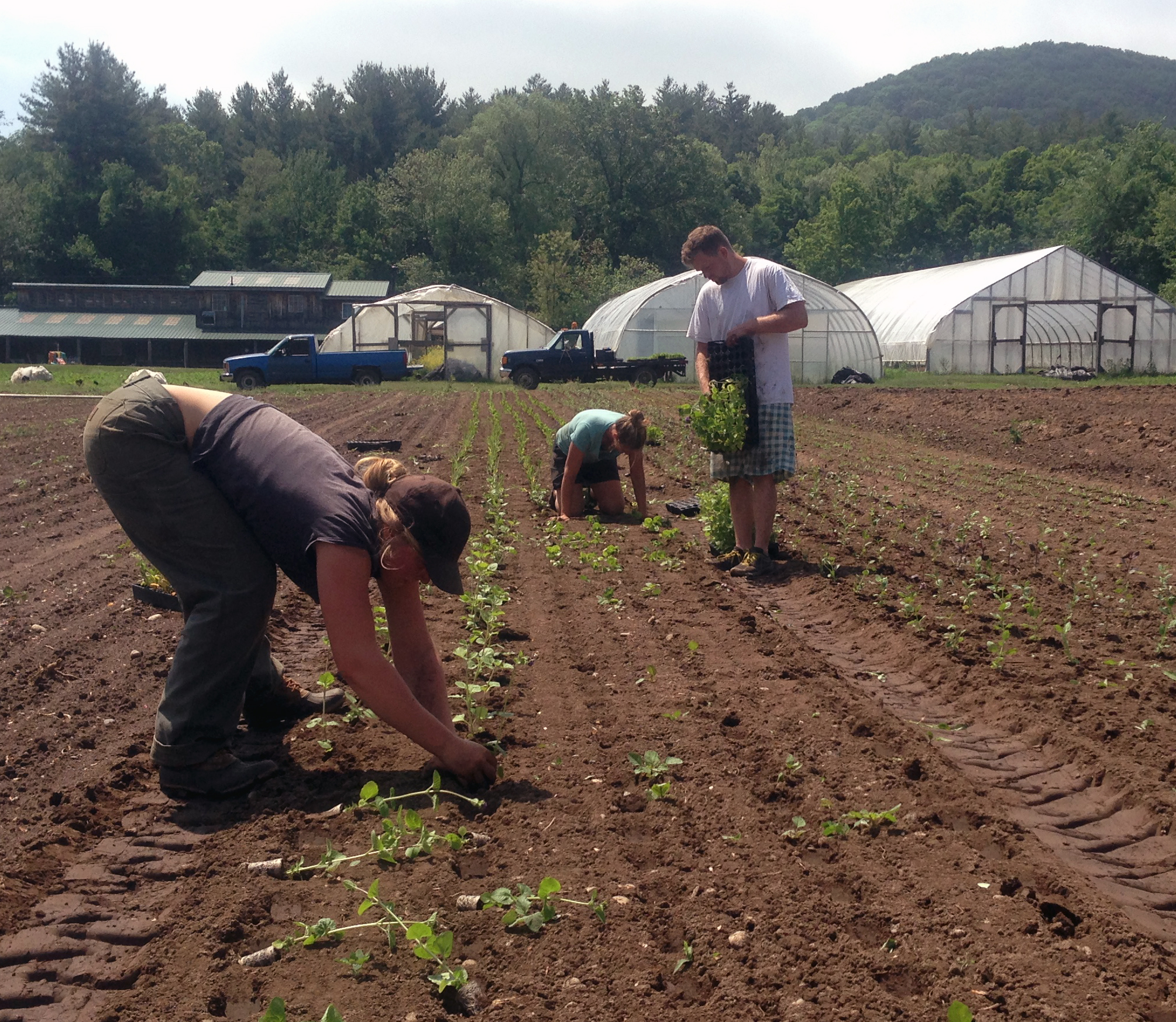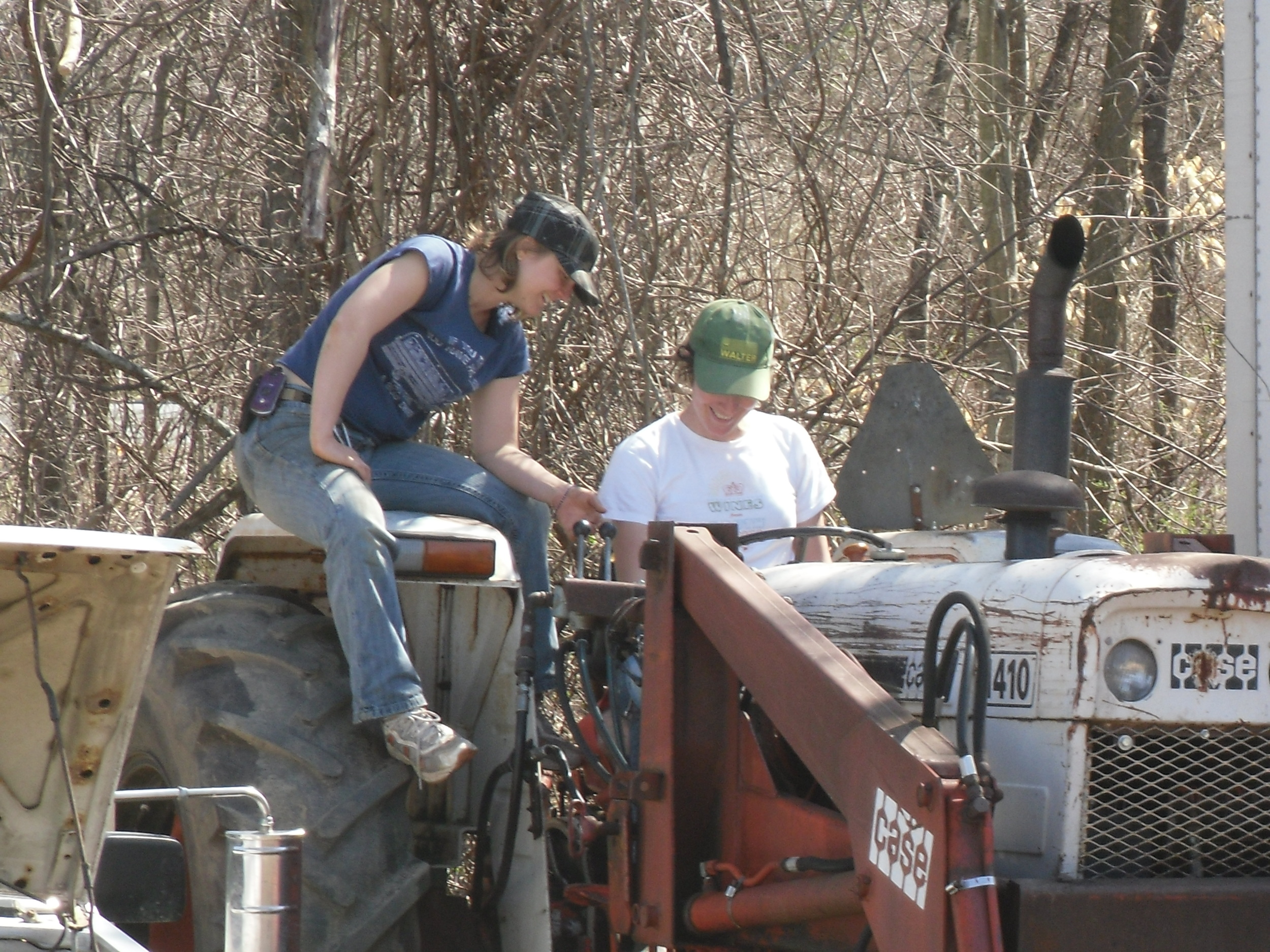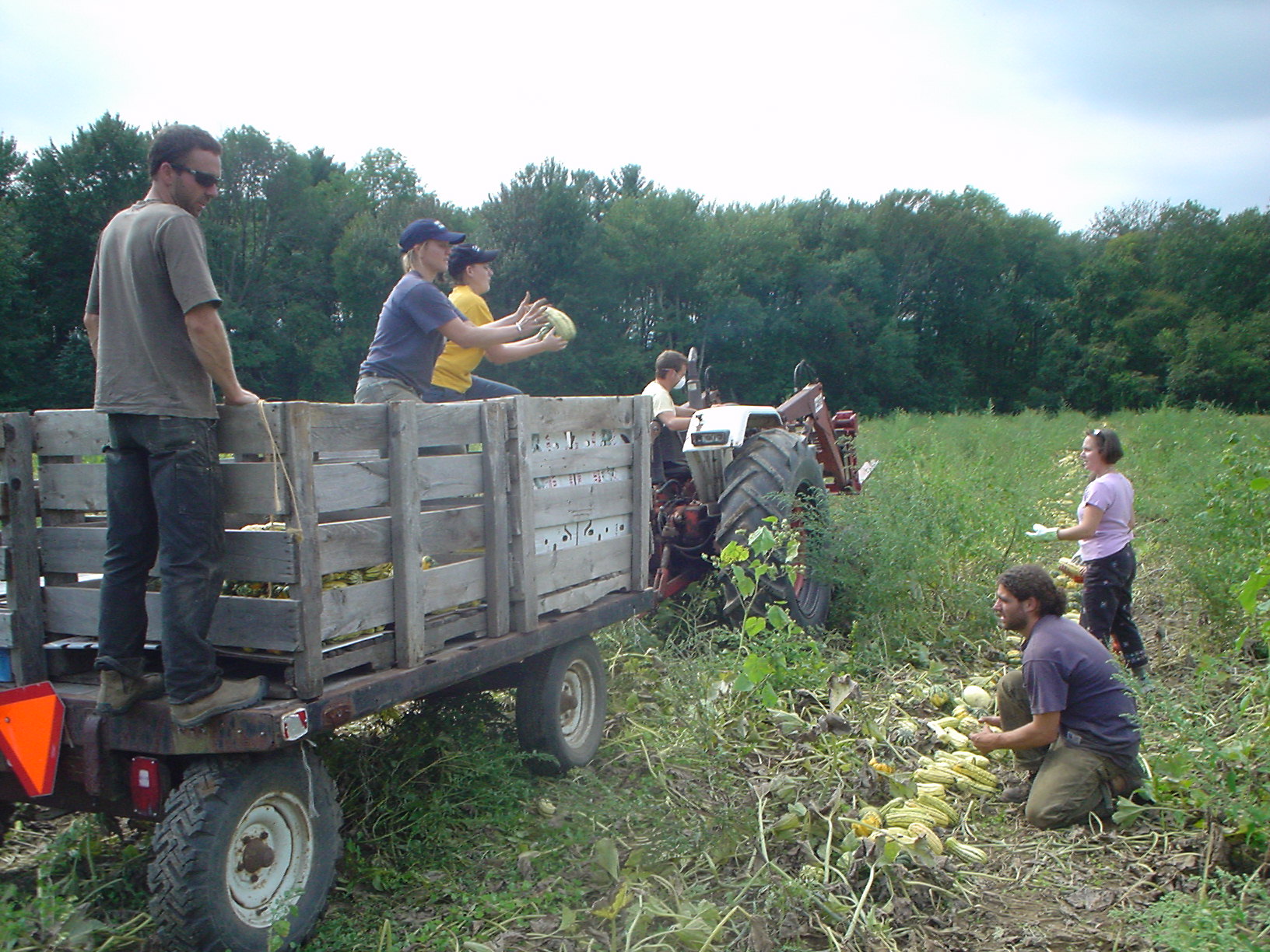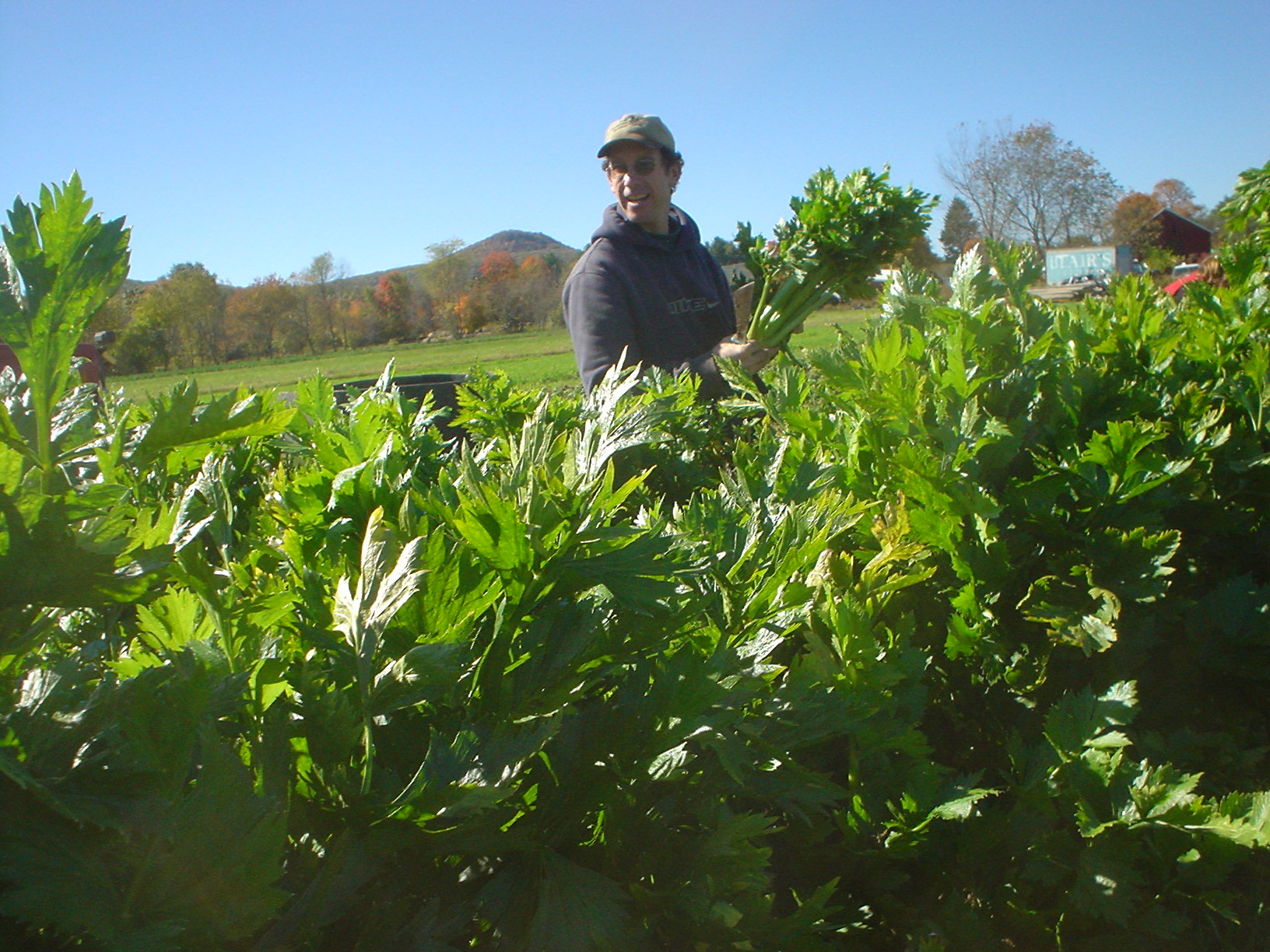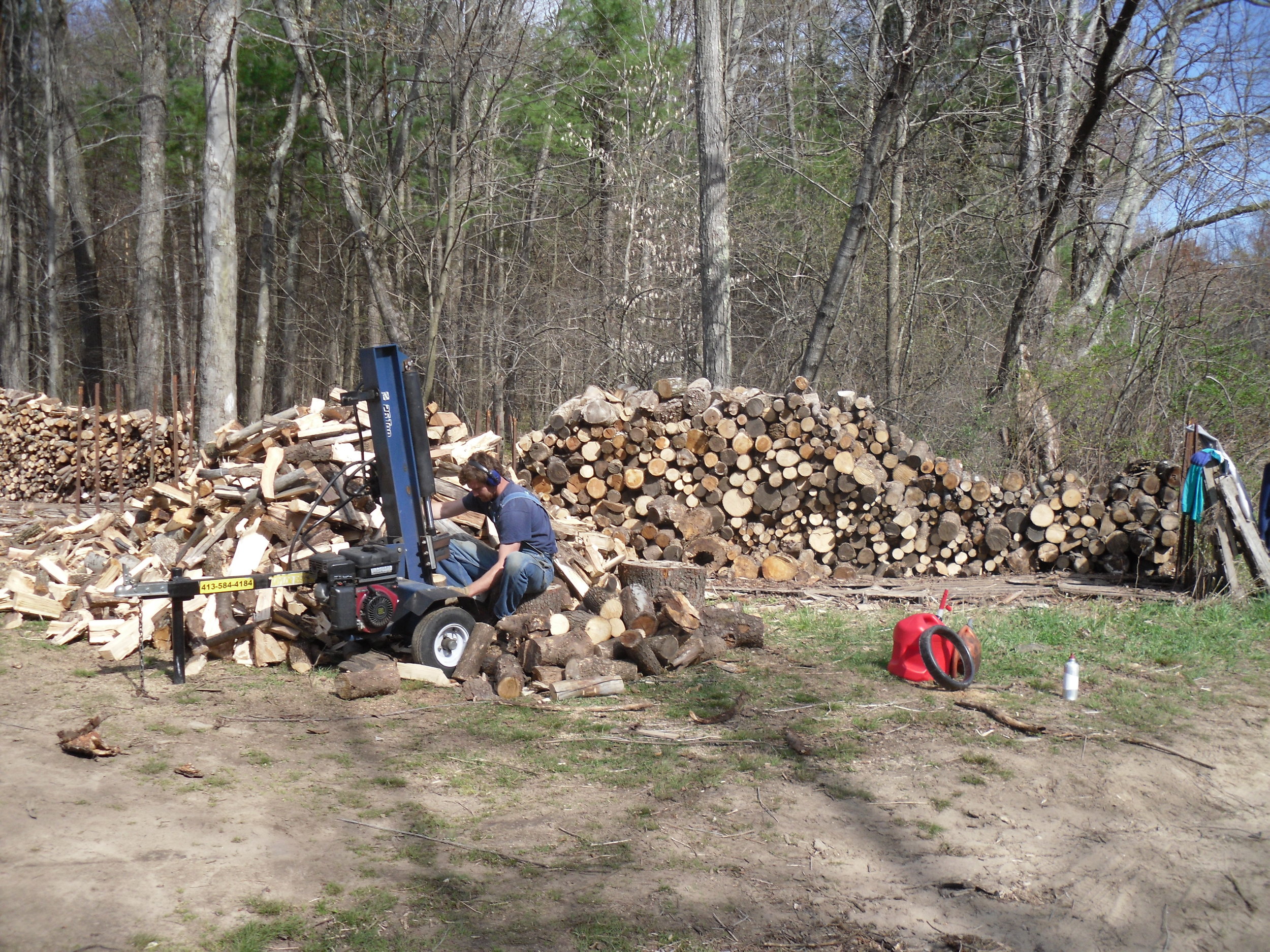Our Farmer Training Program
We are hired up for the 2024 season. We will begin hiring for the 2025 season in august. check out our weeder crew positions if youd like to work with us in 2024.
about the apprenticeship
Apprentice training is a big part of how we fulfill our mission of "farming for the future." Many of our past apprentices have gone on to own or manage their own farms, others have gone on to work in extension or research. See what they are up to!
Brookfield Farm is a living learning center and becoming an apprentice provides a comprehensive experience of our farm, from the inside out. Apprentices work in all aspects of the farm's production, from soil preparation to harvest, from tractors to hand hoes, from administration to marketing farm products.
During the course of the full season, apprentices are given the information and time to learn the essential skills needed to manage a mixed organic/biodynamic farm on their own. In return apprentices are expected to give their labor for the daily working of the farm.
Job Description
We begin hiring for the 2024 season in the fall. To apply for the 2024 season, send us a letter of intent and a resume and we will get back to you with the next steps. An on farm working interview is required as part of the hiring process. Please consider your availability to complete this requirement before applying.
This is a long, long web page. We wrote it all to give a very clear sense of the apprenticeship. Please read all the info below to see if it feels like a possible good fit for you!
Brookfield Farm is a 120-acre mixed farm with 25 acres in vegetable/soft fruit production, a small livestock operation (beef cattle and pigs), pasture, hay, and a woodlot. All of the produce of the farm is grown for the Community Supported Agriculture (C.S.A.) project, which sells 525 shares on a yearly basis. The farm is managed along (non-certified) organic lines and is economically self-sustaining. We offer apprenticeships to those people who are interested in being students and practitioners of sustainable agriculture.
During the course of the season, apprentices are given the information and time to learn the essential skills needed to manage a mixed organic farm on their own.
Training and practice working on many aspects of the operation of our CSA, including greenhouse production, transplanting, high tunnel growing, soil fertility, compost making, tillage, bed prep, plant care (including pest management via organically-approved spray and biological controls), mechanical cultivation, harvest, staffing the vibrant CSA distribution, and community events.
While not everyone can be involved in every task, we try to give apprentices the whole picture through monthly meetings and tours and weekly emails to see all fields and crops from the managers perspective in order to learn what gets noticed and what gets prioritized.
Labor on the farm is structured to allow apprentices maximum learning experience. Local high school & college students work on the farm in the summer for hand weeding and harvest help, making life a little boisterous (in a good way) while creating space for apprentices to concentrate on a wide variety of high-skill areas.
Opportunity to experience many different production strategies, for example - several irrigation systems, rented fields vs "home farm" fields, strategies for fields in production for pick-your-own vs cutting greens vs mechanized production for organic sweet corn.
Training in the management of varied groups people is a strength of this farm and a core piece of the apprentice experience.
Training and practice in the primary operation of a 1 tractor and at least 1 implement. Further advancement is based upon demonstration of mastery of this skill and a clear capacity to advance.
Training in business, production planning, and record keeping systems at the farm. From the budget to the crop plan to membership data management to the year-end report, you get the inside scoop on a mature CSA farm, still adapting but with lots of data about systems that work.
In general, the first year apprentice spends the year becoming acquainted with the farm and all the systems involved on it. Second year apprentices have the opportunity to do more management training and take on more responsibility on agreed upon areas of the farm.
While we do accept "entry-level" apprentices and give them a good orientation to farming, our apprenticeship can also be a management training position - if you are looking to learn how to manage a farm, not just how to "go out and hoe," this is the place for you.
While we work hard on the farm, we also are committed to creating a farming culture that supports our individual quality of life through balance and fairness. The work schedule is Monday through Friday, 7am - 5pm (with one hour breaks for lunch) and Saturdays until noon. We end work promptly at 5 pm to respect time for non-farming pursuits: summer Ultimate Frisbee league? evening swim? sitting on the back porch? tubing the river? dinner and sleeping? Yes, please. All apprentices also take part in a rotating chore schedule, with responsibilities one weekend out of four. The apprenticeship begins April 1 and concludes one week after Thanksgiving. Apprentices may stay for multiple growing seasons, by mutual agreement at the end of the first season, and take on more responsibility in following years. A stipend of $1800/mo. (first year), housing and utilities in the "apprentice house" next door to the farm, farm produce and weekday prepared lunches at the apprentice house. Health insurance in Masachusetts is available through Mass Health.
In addition, apprentices may take part in the CRAFT program, which offers visits to a variety of organic and biodynamic farms in the Northeast for in-depth farm visits. These visits are typically on Mondays, and apprentices may take work time to attend. There is also a wide array of agricultural, cultural, and recreational resources in the immediate area.
In accordance with Federal law and U.S. Department of Agriculture policy, this institution is prohibited from discriminating on the basis of race, color, national origin, sex, age, or disability and familial status. (Not all prohibited bases apply to all programs.) To file a complaint of discrimination, write to USDA, Director, Office of Civil Rights, 1400 Independence Avenue, S.W., Washington, D.C. 20250-9410, or call (800)795-3272 (voice) or (202)720-6382 (TDD). USDA is an equal opportunity provider employer, and lender.
Equal Employment Opportunity: It is the policy of the BFCT to provide equal employment opportunity (EEO) to all persons regardless of age, color, national origin, citizenship status, physical or mental disability, race, religion, creed, gender, sex, sexual orientation, gender identity and/or expression, genetic information, marital status, status with regard to public assistance, veteran status, or any other characteristic protected by federal, state or local law. In addition, BFCT will provide reasonable accommodations for qualified individuals with disabilities. BFCT embraces diverse skills, perspectives and ideas, and encourages people of color, veterans, people with disabilities, LGBTQ candidates, and people from other underrepresented groups to apply.
program detail
Who's Who & What's What
Biodynamic Farmland Conservation Trust, Inc. (BFCT)
This is the organization that owns the farm property and equipment, manages the apprentice program, and is our employer. The BFCT is a non-profit, 501(c)3 corporation, and it managed by a board of directors. Peter Littell is the President of the board of the BFCT. Board meetings occur roughly 5 times per year and are open to the public.
Brookfield Farm
Brookfield Farm is a project of the BFCT. It is not a "legal entity" but rather a DBA ("doing business as") for the BFCT (legally Brookfield Farm owns nothing, hires no one, and is fully managed by the BFCT).
General Manager(s)
Kerry and Max Taylor are the general managers of the BFCT. They are responsible for overseeing all aspects of the programs of the BFCT including Brookfield Farm and the apprenticeship program. The general managers are responsible for program development, administration, hiring, performance reviews, as well as apprentice career development. The general managers are accountable to the board of directors of the BFCT.
Assistant Manager
Bonnie Lathrop is the assistant manager of Brookfield Farm. She is responsible for various areas of management and runs the crew when Kerry and Max need to be away. The farm manager is accountable to the general managers.
Apprenticeship Program
Our program is a hands-on working/learning experience designed to move dedicated candidates towards farm management. We take people from all backgrounds; from inexperienced city folks looking to explore agriculture as a career option to experienced farmers looking for a new approach agriculture. As such, each apprenticeship will have different challenges and take on a different character.
Apprenticeship Contract
We will tailor each experience to the expressed needs of each participant. It is essential that participants make their needs clear and well known before we write an apprenticeship contract during the hiring process. The contract will contain our (farmer and apprentice) expectations for learning as well as benefits and expectations for labor. This contract will be updated during the program orientation and periodic evaluations
Program Orientation
During the first two weeks of the apprenticeship we will conduct an orientation for all of the apprentices. At this orientation we will go over farm policies (including safety, sexual harassment, use of technology, etc.). We will individually review each apprenticeship contract and update them as necessary. We will also begin to set vacation times, assign tractor responsibilities, shopkeeper responsibilities, the Boston driving schedule, and start figuring out how to have a good time together.
Written Materials
All apprentices are given written learning materials throughout their apprenticeship. These materials include crop plans, seed orders, planting schedules, maps, budgets, overall farm plans, and various other supporting materials. In addition there is a small farm library from which apprentices are welcome to borrow books.
CRAFT Program
Brookfield Farm is an active participant and one of the founders of the Northeast CRAFT Program . All apprentices are encouraged to take part in all CRAFT program events during the season.
Career Development
Throughout the apprenticeship, participants are encouraged to develop future plans for their own farm projects. It is considered part of your apprenticeship, if you choose, for the General Managers to review & critique these plans. In addition, all possible steps will be taken by the General Managers to help apprentices find job placement or further opportunities if so desired. Future mentoring & consultation for all apprentices is considered part of the package.
Responsibilities
Regular Work Schedule
Monday through Friday: 7am-12pm, 1-5pm
Hours change during share distributions and during chore duties (see below for more information).
General Work
The apprenticeship is, at its core, a working-learning experience. Our primary method for teaching how to manage a farm is by giving you skills and having you perform tasks within our farm system. Apprentices are given an overall task list each week on Monday and specific tasks are then assigned by the acting "Chief of Daily Work Strategy" throughout the week. All assignments are made with the needs of the farm and the specific stated needs of apprentices in mind.
Chores
Apprentices are on a rotating chore schedule for the greenhouse, livestock, and lunch clean up. One week out of every four each apprentice is the chore person and responsible for:
Greenhouse: The chore person is responsible for watering the greenhouse during the week (Am, Noon and PM) and on the weekend as well (including non-work times). If you are at a CRAFT meeting the Farm manager will take care of midday watering.
Livestock: The chore person is responsible for making sure the cows have water, electric fences are electrified, feeding & watering the pigs and looking in on the livestock at least once per day. The grazing will be managed as part of the general workday. If you are going to the CRAFT meeting, you will need to do livestock chores before leaving for the farm visit.
Saturday Shop set up and coverage: Recently we have moved to full weekends off for the crew, but we still have a Saturday farm share. During their chore week, the chore person is responsible for helping the Saturday shop keeper set up and stock the shop as well as provide back up support (for example harvesting additional produce if needed).
Lunch Clean up: The chore person is responsible for helping clean-up lunch by 12:50 pm.
General/Emergency Backup: The chore person is responsible for being an emergency backup for the entire weekend. As a result they need to stay in the general area (within 30 miles) and be ready to be “on duty” in the event of an emergency.
Shopkeeper
The farm shop is open at hours that conflict with the regular work schedule. During our orientation, each apprentice will be assigned responsibility for one consistent shop time. The people who work on Tuesday and Thursday will need to work until 7:30 pm. Workdays for shopkeepers on weekdays start at 1 PM.
CRAFT Program Events
All apprentices are encouraged to take part in all CRAFT program events during the season. They happen during regular work times (Monday afternoons) and if you attend, there is no need to make up the work time. If you do not attend the event, you are expected to come to work for the usual schedule. Apprentices must use one their own vehicles and receive reimbursement for the travel at .40c/mi. If there is a road-worthy farm vehicle available and the apprentices choose to use their own vehicle, they will not be reimbursed. It is not a requirement to attend the CRAFT program events.
Boston Driver
We deliver shares to Boston weekly. Generally management will do the delivery. Second year “grower” apprentices may be able to take on this job if they show interest and the capability to do so.
Tractor Operation
At Brookfield Farm, we give apprentices who show interest the opportunity to train on tractors based upon ability, aptitude and interest. It is our goal to give every apprentice the opportunity to drive at least one tractor and gain experience in at least one tractor task. Upon demonstrated mastery of the assigned tractor, apprentices have the opportunity to take on more tractors tasks. Tractor operators must show the ability to safely operate the tractor as well as proper operation of the equipment an skill in the task before advancement. Advancement is not guaranteed.
The tractor assignments will be made during the program orientation. All attempts will be made to let each apprentice do all of the jobs on "their" tractors during the season so they can learn the jobs thoroughly but this can not always be guaranteed (sometimes a job just needs to get done!). In this way apprentices are given the opportunity to learn general tractor skills by focusing on a task while at the same time minimizing training needs and repair costs.
Compensation
Stipend
Stipends are paid on the 15th of each month ($1800 starting). A tax withholding is taken out of this stipend. Stipends will be set year-to-year by the General Manager and approved by the Board of Directors.
Worker's Compensation
All apprentices are covered by workers compensation and covered (with certain legal limitations) for all work-related injuries. Work related injuries must be reported and documented within 24 hours of the injury.
Health Insurance
Apprentices may purchase insurance through the Mass Health Connector. Apprentices may elect to keep their current insurance.
Lunch
Friday farm lunch is provided. There is ample food and people are encouraged to eat as much as they want. We use as much farm food as possible. We can make some allowances for special dietary needs (if they are addressed beforehand). One apprentice (the chore person) helps one manager clean up the kitchen.
Farm Food:
Produce: All apprentices are allowed to take farm produce for their personal use (including putting up for winter). This includes up to 100 lbs. of produce per year as gifts for family and friends. These benefits only include those vegetables that the General Manager has identified are abundant.
Meat: All apprentices can take up to $50 worth (retail price) of farm meat (beef and/or pork) each year. Additional farm-raised meat can be purchased at 25% off retail price.
Shop Sale Products: Apprentices can help themselves to a limited amount of milk, frozen bread, eggs, and apples (for their own consumption) for sale at the farm shop at no charge. Each apprentice also receives a $50 store credit each year. All other Shop Sale products (cookbooks, popsicles, etc.) can be bought from the farm at cost. The limits will be defined during orientation week.
Housing
The farm owns a private, 3-bedroom house next to the farm. Each apprentice is assigned a private room. Room assignments are first come, first served. There is a shared kitchen, living room, bathroom, garage, yard, and laundry room. Utilities are included in the housing, with the exception of telephone. It will be the responsibility of the apprentices to get their own phone and web service and pay for the bills in their name. The apprentice house must be kept clean at all times and will be inspected monthly You can decide, as a group, how you want to achieve this goal, but all apprentices will be responsible for the care and clean appearance of the house. Mowing the lawn will be the responsibility of the apprentices. The mower will be provided by the Trust, but the lawn must be mowed on a regular basis (at least every 2 weeks in July, August, and September, every week in May and June). There will be a separate housing agreement, which will give more details about care for the house and a security deposit necessary for occupancy, will be provided for each apprentice to review and before the season begins.
Time Off
Vacation
Each apprentice will be allowed one week paid vacation. Vacation days must be approved two weeks in advance by the manager. Each apprentice will also be allowed one Saturday off during April, May, October, and November. Vacation days may not be "saved" and used after that time. All vacation time will be established in April, trying to take needs of all participants into account. Apprentices do not have to take vacations.
Personal Time
It is expected that there will be some need during the season for every apprentice to take some personal time, whether for car repairs, doctor’s appointments, family emergencies, or other unforeseen personal needs. The goal is to complete personal time needs during comp time or weekends. Nevertheless, unexpected needs occur. Each apprentice is allowed up to 2 personal days each season. Personal days are not vacation days. They are considered to be used if an unscheduled special need arises (major or minor person needs). There is no need to make up work for personal days and they do not need to be taken as “full days.” It is expected that the General Manager will be given ample notice about the need for personal time and that opportunities will be taken when possible to make personal time happen at convenient times for the farm schedule. If more days are needed, they will need to be cleared ahead of time with the General Manager. Personal time may not be saved and used during a second season.
Sick Time
The farm season is short and busy. Our hope is that you do everything possible to take good care of yourself, especially rest, to stay well. Illness is still inevitable. If you are ill, please let us know as soon as possible if you think you will be unable to work. If you miss more than 3 days of work during the season due to illness, apprentices will discuss with the General Manager the options of unpaid sick-leave or termination of the apprenticeship. You do not need to make up work for sick days.
After-Hours Work
There will be comp time given for any regular work that is performed after regular work hours. The general manager will always give you a choice as to whether you want to work after hours or not in these situations. In the event of a farm emergency (animals out of the fence, reemay in a tree, etc.) it is expected that apprentices who are on or near the farm will help until the situation is corrected. There will not be comp time given for these cases.
Personnel Procedures
Hiring
All apprentices are interviewed & hired by the general manager(s). An on farm visit is required to assure a good fit for everyone.
Performance Review / Supervision
Apprentices will go through a performance review with one manager 4 times per season. There will be an intake/goal setting session in April, performance reviews in June and September, and exit session in November. This process is intended to facilitate effective communication between all members of our regular farm team. We will go over the specifics of all of this in the orientation.
Accountability
All apprentices are accountable to the general managers. The general managers are accountable to the BOD of the BFCT. The BOD is accountable to the bylaws under which it operates.
Grievance Process
If any grievances arise it is expected that the first course of action for all apprentices will be to speak directly to the general manager(s). If there is still a problem that cannot be resolved, all apprentices are welcome to speak directly with the President of the BFCT who will be responsible for resolving any personnel matter.
Continuation of Apprenticeships
Many apprentices feel that one year on the farm is not enough time to get the training they need. We encourage people to consider the possibility of staying for more than one season. While encouraged, it is not automatic for apprentices to be accepted for a second year – the basis for the decision will be your performance review over the first year and solely at the discretion of the General Manager(s).
Process:
●By Oct 15, each apprentice declares his/her interest to the General Manager(s) in returning.
●The committee reviews applications and has three options – acceptance, provisional acceptance, or rejection.
●Current apprentices will be notified of the General Manager’s offer by Nov 15.
●The General Manager drafts a contract to outline the specifics of the apprenticeship continuation.
GENERAL POLICIES
Visitors
Working visitors are welcome at the farm and apprentice house for up to one week but are subject to the wishes of other apprentices and must be approved by the general manager. Working visitors need to work our normal schedule and are provided lunch.
Non-working visitors are welcome at the farm and apprentice house for up to two days. Longer visits are subject to the wishes of other apprentices and the general manager. They are welcome to eat farm produce deemed abundant, but need to buy items for sale at the farm shop at regular prices.
Pets
Pets may be permitted in the apprentice house WITH THE EXPLICIT AGREEMENT OF THE MANAGERS. This is not guaranteed. All pets must be spayed or neutered and have all required immunizations and flea and tick control. All messes created by the pet are required to be cleaned up and repaired. This includes problems the pet causes between roommates. There is a required security deposit of $250 for any pet.
Only leashed pets are permitted on the farm. No pets are permitted in the Farm Shop from June 1 – Nov 30 or in the rows of growing crops. Pet owners are responsible for their appropriate interaction with the public and with the property of the BFCT.
Shareholder Interactions
As Brookfield Farm is a public place and we depend on our shareholders (and prospective shareholders) for our livelihood, all apprentices (and all employees) are required to be professional, polite, engaging, and helpful to all people who come to the farm.
General Demeanor
Since our work is almost always in a group setting, it is expected that all apprentices will be prompt, dressed appropriately, professional, and approachable with their co-workers during work-hours.
Timeliness
All apprentices are expected to be on time daily. Consistent failure to do so will result in the need for further discussion regarding employment
Tools/Clothes
The farm provides harvest knives and daily hand tools. Apprentices must provide any other desired tools or clothes (pocket knives, rain boots, rain gear, hats, and gloves). It is suggested to carry a small notepad, a pen, and a knife as well.
Farm Office
The farm office must be locked at the end of work each day. Each apprentice will be given a key to use the farm office after hours. Apprentices may use the Internet connection in the office after work hours. Apprentices may use the office during lunch for personal business. The computer on the standing desk near the whiteboard is available for apprentice use. The office must be kept completely free of personal belongings. The office must be locked upon leaving. Use of computers for any inappropriate use will prohibit further use of this privilege.
Safety Policies
We will go over safety policies during the program orientation. All apprentices are required to follow safety policies at all times. Failure to do so will result in immediate dismissal.
Farm Vehicles
Apprentices are trained in the safe use of farm vehicles and are fully covered by insurance for their operation. Farm vehicles are to be used only for farm business without any exceptions. Farm vehicles may not to be driven by anyone who is not an employee or apprentice at Brookfield Farm without any exceptions. A valid driver's license is a requirement for all apprentices.
Drugs and Alcohol
There are no illegal drugs permitted on the farm property at any time (this includes the apprentice house). Legal drugs and alcohol are permitted in moderation at the apprentice house, but there is no smoking inside any building of the BFCT and alcohol may not be served to underage visitors. It is unacceptable to work while under the influence of any drugs (legal or illegal). Use of tobacco is prohibited on all farm property. One infraction is cause for immediate dismissal.
Equal Employment Opportunity
It is the policy of the BFCT to provide equal employment opportunity (EEO) to all persons regardless of age, color, national origin, citizenship status, physical or mental disability, race, religion, creed, gender, sex, sexual orientation, gender identity and/or expression, genetic information, marital status, status with regard to public assistance, veteran status, or any other characteristic protected by federal, state or local law. In addition, BFCT will provide reasonable accommodations for qualified individuals with disabilities.
BFCT embraces diverse skills, perspectives and ideas, and encourages people of color, veterans, people with disabilities, LGBTQ candidates, and people from other underrepresented groups to apply.
Thanks for reading!
If you're interested in applying for our apprenticeship, send us an e-mail with a letter of intent and current resume. We will reply with next steps. Please note we are require an on farm visit in the application process. This is essential to get to know and make sure it is the right fit for you.
